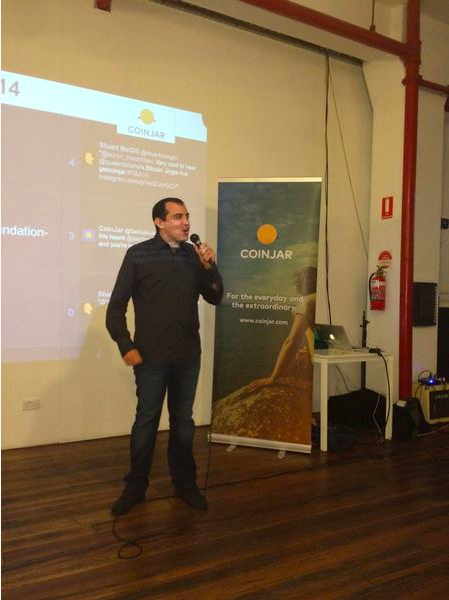The importance of community in crypto

Almost all animal species have their own unique social systems, predicated upon a set of specific needs – whether that’s food scarcity, survival in numbers, or other habitational intricacies. The importance of human social interactions is unmissable in everyday life. Think about our families, our corporate structures, our governments… the necessity to work together is evident everywhere.
When we look back at the history of cryptocurrency and how it got to where it is, we can see how integral a sense of community was and continues to be. The crypto ecosystem is built on that community spirit. In fact, it is ingrained into the technology itself.
Due to its peer-to-peer nature, no one entity owns Bitcoin. The technology is built and maintained by those whom it serves. Each crypto community member has skin in the game, meaning they’re incentivised to maintain the integrity of the technology. From miners to developers to Bitcoin adopters, it’s always been necessary to come together to keep the technology going.
Bitcoin’s peer-to-peer nature has also impacted how word about the technology has spread. Bitcoin itself never had any marketing budget. It was all done by word of mouth, whether online on forums and social, or offline at community-led meetups and education-driven sessions. To this day, the communities that sprung from these are the primary drivers of growth in the space.

Above: Andreas Antonopoulos photographed at a Bitcoin meetup in 2014.
Communities are vitally important ecosystems that need to be nurtured, but they don’t appear magically by osmosis. Satoshi Nakamoto saw how important a sense of community would be from the beginning. Nakamoto built one of the most historically significant crypto communities in 2009, the BitcoinTalk Forum, posting the first message in 2009 under the pseudonym “satoshi”. In doing so, Nakamoto rallied together a group of individuals who were able to take the idea of a peer-to-peer cashless system and spread the word.

Above: Satoshi Nakamoto’s first post on the bitcointalk.org forum
11 years ago today… pic.twitter.com/SH2cLDmtdQ
— Bitcoin (@Bitcoin) October 31, 2019
Why we build communities
We form communities to share ideas, to collaborate, and to enhance unity and solidarity. When we’re passionate, excited or fearful, we feel compelled to share these sentiments with like-minded individuals. Cryptocurrency is a complex landscape very much still in its infant stages. Members of the crypto community – developers, writers, analysts and others – share the responsibility and desire to educate and inform those around them. As the technology is so nascent, so too is people’s knowledge around it. No one knows everything, and the constant sharing of knowledge is vital to innovation and adoption.
In the early years, the idea of cryptocurrencies and Bitcoin, in particular, was revered by a small group of people to be something truly amazing. They challenged the status quo of the traditional finance system and presented an alternative. This was and continues to be a mammoth feat – it’s not easy to bring about change in a system that’s been largely untouched for centuries. As of December 2019, there are over 42 million Bitcoin wallets in the world. From a small group of cypherpunks and libertarians to millions of people worldwide, the crypto community’s efforts around educating and encouraging collaboration have resulted in these steady mass adoption trends.

Above: The now-famous “I AM HODLING” post, which sparked the use of the term “HODL”.
20+ people and standing room only at the San Francisco Bitcoin meetup group tonight. http://t.co/8JsqDxLH pic.twitter.com/8rPtudoj
— Roger Ver (@rogerkver) July 24, 2012
At its core, cryptocurrency returns the power to the people. It’s about building functional tools and processes that work for everyone, no matter how unique the context. In order to build something functional and useful, it’s important to understand what people want and what they need. The open, two-way conversations the crypto community wholeheartedly facilitates has had a big part to play in how successful and important the technology is to so many different people from all over the world.
Rick Howe, founder and technical project manager of ZERO believes “Having a strong community is paramount to the success of a project, especially in cryptocurrency.” He continues, “They’re the most important part of a cryptocurrency’s lifespan [and] the use case, without a use case, a cryptocurrency has no reason to exist.”

Above: A Bitcoin evangelist’s dedicated effort to see “the Bitcoin project succeed” by offering free 1,100 free Bitcoins valued at around $0.08 per BTC, now worth $8,146,578 collectively at the time of writing.
Where the communities began
The crypto community has always had its roots in live events, which take place each year across the world. These events serve as a platform for two-way dialogue with well-known crypto community players, those looking to learn and understand the technology behind the currency, to discuss technological trends and updates, and of course, for companies to showcase their own offerings. Annual events have blossomed from meetups of 20 or so people to tens of thousands at events like Consensus or the blockchain summits that take place in major cities across the globe.
Running bitcoin
— halfin (@halfin) January 11, 2009
But communities aren’t bound to geographical locations; online communities are made up of individuals with shared ideologies from all over the globe and Nakomoto embraced this from the ground up. Cryptocurrency is fundamentally based upon the concept of decentralisation, and we can see this at the very core of crypto communities. The crypto community, in particular, is extremely discursive, making use of a number of online platforms like Reddit, Twitter and Telegram, among others, in order to understand what needs to be done to make the currency a success.
We’re currently going through an extremely turbulent time due to the coronavirus outbreak and the effects it’s had on almost every aspect of our lives. The global economy is in a state of turmoil and this has had an impact on the crypto world, too. However, it’s become very clear crypto has always had its heels firmly sunk in the digital space. A vast majority of hugely popular crypto events have moved to the online space to showcase their events. This speaks to the high demand for these events and to the ease of which the industry is able to adapt. The crypto community thrives on the ability to collaborate, discuss and create better tools that people really want and need. This is only possible due to the nature of the community and its utter resilience.
Which other industry displays this desire to foster connection and innovation?
 Discover
Discover Help Centre
Help Centre Status
Status Company
Company Careers
Careers Press
Press

